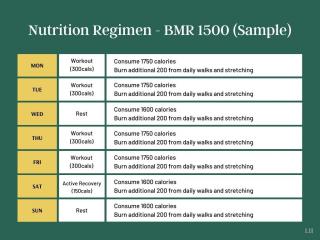Most people would love to live longer, but are there scientifically-backed habits that could improve your longevity? Can food, sleep, and exercise really help to increase your longevity?
The good news is that there are many modifiable risk factors. So, there are lots of ways that you can increase your likelihood of a longer, healthier life. Read on to learn about 14 habits that will increase your longevity and find out what changes you can make today.
1. Get Enough Sleep
Getting enough sleep is important as poor sleep increases your risk of obesity, heart disease, accidents, and dementia. During sleep, the cerebrospinal fluid (CSF) that bathes your brain and spinal fluid flow in slow waves that clear toxins associated with increased risk of neurodegenerative disease, including Alzheimer’s disease (AD).
But how do you know how much is enough sleep, as this differs for everyone? Simply go to sleep when you are tired, and wake up without an alarm, and it will give you a rough indicator of how much you need.
2. Eat Enough Fiber
Eating enough fiber can also help increase longevity, as it is linked to a reduced risk of bowel cancer. Fiber is also important for the health of all the friendly bacteria that live in your gut (microbiota), which play an important role in cardiovascular risk.
To reduce your risk of bowel cancer, it is recommended to eat 30 grams of fiber a day. If you are unsure what this looks like practically, you can get a free cheat sheet online.
3. Have a Healthy Diet
Eating a healthy diet full of whole grains, fruit, vegetables, fermented food, and omega-3 can reduce your risk of chronic inflammation, cardiovascular disease, type 2 diabetes, and dementia. Hence, you should make it a habit to always include these foods in your diet.
4. Maintain a Healthy Weight
Maintaining a healthy weight is important, as overeating and obesity have been linked with increased risk of cancer, cardiovascular disease, fatty liver, and type 2 diabetes. In animal studies, caloric restriction was associated with increased longevity. These haven’t been replicated so far in humans, but the fact that it helps reduce the risk of the aforementioned health problems is beneficial enough to be considered.
5. Socialize Frequently
Social isolation has been linked with a 50% increase in risk of developing dementia. Hearing loss can contribute to this as well, as it is associated with a reduced ability to socialize.
6. Add Nuts and Oils to Your Diet
Many people avoid nuts and oils as they think they are fattening, but a large study called PREDIMED found that if you are over 55 and at a high risk of cardiovascular risk, then a Mediterranean diet with extra olive oil or nuts may reduce your risk. If you aren’t in this group, the effects are less clear, but similar favorable results are seen with lots of similar diets that focus on whole grains, healthy fats, and lots of fruits and vegetables.
7. Be Physically Active
We all know that we should exercise, but did you also know that physically active people have approximately 30 to 35% lower risk of dying from all causes? Exercise reduces the risk of high blood pressure, type 2 diabetes, cardiovascular disease, and cancer, and therefore, helps increase your longevity. Physically active people may increase their life expectancy by between 0.4 to 4.2 years just with regular exercise.
Anything you can do is better than nothing, but aim for 30 minutes of aerobic exercise three times a week and two sessions of weight-bearing activity.
8. Cognitive Resilience
The risk of dementia is associated with lower cognitive reserve and resilience. Cognitive resilience in later life may be enhanced by building brain reserve earlier in life through education and other intellectual stimulation. Education increases branching of nerve cells and plasticity (the ability to change through growth and reorganization), increasing brain reserve. Lower rates of late-life dementia are associated with higher education levels.
9. Intermittent Fasting and Time-Restricted Eating
You might think that a healthy breakfast is the foundation of healthy eating and that skipping breakfast is unhealthy, but several preclinical studies in animals have shown that intermittent fasting and time-restricted eating, (where you only eat within a six to eight-hour window) can reduce a range of chronic disorders, including obesity, diabetes, cardiovascular disease, cancers, and neurodegenerative brain diseases.
These effects have also been replicated in humans, and there is now evidence that intermittent fasting and time-restricted eating induces cells to switch on a coordinated stress response, resulting in an increased expression of antioxidant defenses, repair of DNA, higher standards of protein quality control, and reduced levels of inflammation.
Eating three meals a day has more of a cultural basis than scientific evidence. So, you should consider trying time-restricted eating or intermittent fasting.
10. Low-Carbohydrate Diets
Low-carbohydrate diets have become increasingly popular. They involve consuming less than 26% of daily energy from carbohydrates, compared to government healthy eating guidelines, which advise about 50% of daily energy from carbohydrates.
There are lots of slightly different low-carb diets in the media, such as the Keto and Atkins diets, which have gained popularity due to short-term weight loss. Ketosis is a metabolic state which occurs to those following a very low-carbohydrate diet plan (i.e. including only 5 to 10% of energy from carbohydrates). Instead of breaking down or burning carbohydrates (the body’s preferred energy source), cells are forced to break down fat instead. When this occurs, specific chemicals called ketone bodies or ketones are formed, and this is why it is called ketosis or ketogenesis.
There is evidence that short-term use of these diets may lead to weight loss but no evidence of superior weight loss in the long term. Better short-term control of blood sugar in type 2 diabetes has been associated with a low-carbohydrate diet, but again, there is insufficient evidence of long-term benefits.
Low-carbohydrate diets that are high in plant-based protein and plant-based fats have been shown to be associated with decreased mortality and cardiovascular risk, while low-carbohydrate diets that are high in animal fat and protein have been associated with an increase in all-cause mortality and cardiovascular risk. Overall, there are several pros and cons of low carbohydrate diets.
While eating a diet rich in fat might sound appealing, if you wish to lose weight in the short term, I would advocate that a more balanced diet of wholegrain carbohydrates, fruit, and vegetables is a less restrictive way of achieving long-term health.
11. Avoid Smoking
Smoking increases your risk of all-cause mortality and cancer. It is also associated with reduced longevity, shortening your life by approximately 10 years depending on how much and how long you smoked for. Stopping before age 40 years (and preferably well before age 40 years) avoids more than 90% of the excess mortality caused by continuing smoking, while stopping before age 30 years avoids more than 97% of it.
12. Avoid Alcohol Consumption
In 2016, alcohol use was the seventh leading risk factor for both deaths and disability-adjusted life-years, accounting for 2.2% of female deaths and 6.8% of male deaths. There is no safe level of alcohol consumption, and alcohol is linked to an increased risk of cancer, liver disease, and cardiovascular disease. Any possible theoretic benefits are outweighed by the risks.
13. Avoid Too Much Stress
Chronic stress is thought to affect up to 25% of the population. Stress appears to change overall food intake in one of two ways, resulting in either overeating or undereating. Interestingly, this can be determined by the severity of the stressor.
Chronic life stress is associated with a greater preference for energy and nutrient-dense foods, such as high in sugar and fat foods. In men, studies have suggested that chronic life stress may be linked to weight gain. It also impacts the gut microbiota via the bi-directional gut-brain connection. This is associated with increased chronic inflammation. For society, chronic stress is a considerable health concern, associated with various disease states, increased risk of cancer, and an increased risk for neuropsychiatric disorders, such as anxiety and depression.
Here’re 10 stress management techniques you can learn.
14. Stay Away From Processed Meat
Red meat is meat that is red before it’s cooked, such as beef, lamb, and pork. Processed meat isn’t meat that is just shaped, but it is also preserved like bacon and sausages. Eating processed meat is linked to an increased risk of bowel cancer. For every 1000 people in the UK, about 61 will develop bowel cancer.
Moreover, people who eat the lowest amount of processed meat are likely to have a lower lifetime risk than the rest of the population (about 56 cases per 1000 low meat-eaters). Among 1000 people who eat the most processed meat, you’d expect 66 to develop bowel cancer—10 more than the group who eat the least processed meat. The link with red meat is less clear, but it still does appear to increase the risk of bowel cancer.
This is thought to be due to chemicals naturally found in the meat that when cooked, can cause damage: heam, nitrites, nitrates and heterocyclic amines, and polycyclic amines. Switching to organic meat doesn’t decrease the risk associated, but eating meat that is free of preservatives might reduce the risk slightly. While red meat is a good source of iron, so are many plants, and fundamentally, the less red meat you eat, the lower your long-term risk of bowel cancer.
Botton Line
I hope that you have found this article helpful. You should now see that there are many ways you can help reduce your long-term risk of disease and increase longevity by altering your diet, exercising, and keeping yourself mentally active.
Featured photo credit: Matthew Bennett via unsplash.com





























































